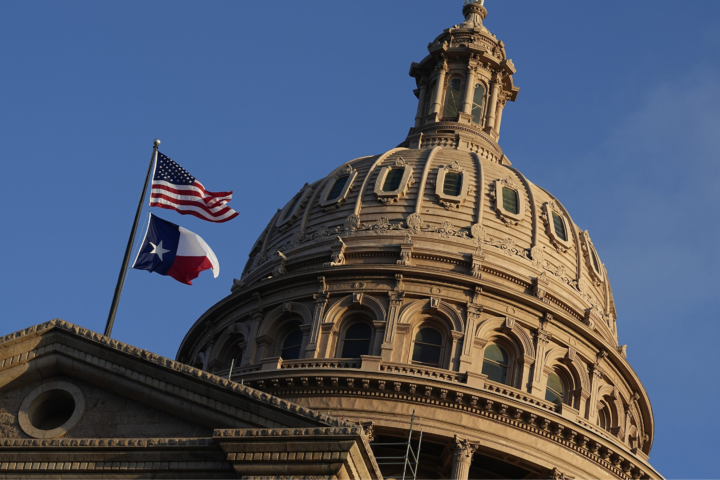Latinos who rely on Spanish-language social media for news are at a significantly higher risk of believing false political narratives, a new study reveals, raising urgent questions about the broader implications of misinformation targeting linguistic communities in the United States. Conducted by researchers from the University of California San Diego (UCSD) and New York University (NYU), the study sheds light on a critical vulnerability affecting one of the nation’s fastest-growing demographic groups.
This groundbreaking research, published in PNAS Nexus, uncovers a stark reality: Spanish-speaking Latinos are between 11 to 20 percentage points more likely to believe false political narratives than their English-speaking counterparts. With the Latino electorate playing an increasingly pivotal role in U.S. elections, the findings underscore the importance of understanding how misinformation spreads within Spanish-language digital spaces.
“Latino voters are highly courted during elections, and their voting patterns are often analyzed for shifts in support,” said Marisa Abrajano, a political science professor at UCSD and the study’s lead author. “Our research highlights how Spanish-language social media creates unique vulnerabilities that can shape political knowledge and beliefs, with profound consequences for democratic processes.”
A Deep Dive into Misinformation Vulnerabilities
The study surveyed over 1,100 Latino users of Facebook and Instagram, representing a diverse mix of English-dominant, bilingual, and Spanish-dominant individuals. Participants were tested on their belief in several widely circulated false narratives, including the claims that Venezuela is intentionally sending criminals to the U.S., that most Planned Parenthood clinics closed after the overturning of Roe v. Wade, and that COVID-19 vaccines make breast milk unsafe for infants.
The results revealed a troubling pattern. Spanish-language social media users were disproportionately likely to accept these falsehoods, even when controlling for factors like language spoken at home. This trend persisted despite efforts to mitigate biases inherent in survey responses.
“While there’s been widespread discussion about misinformation on social media, our study is the first to empirically demonstrate its distinct impact on Spanish-speaking communities,” said Jonathan Nagler, co-director of NYU’s Center for Social Media and Politics (CSMaP). “This underscores the urgent need for improved content moderation and robust fact-checking mechanisms tailored to Spanish-language platforms.”
Expanding the Scope: Insights from WhatsApp and YouTube
Further research, slated for publication in Political Research Quarterly, broadens the conversation to other platforms such as WhatsApp and YouTube. While Latinos’ overall online political engagement mirrors that of non-Hispanic whites on major platforms, WhatsApp emerges as a uniquely significant space for Latino users. According to the study, Latinos frequently use the platform to share news, engage in political discussions, and stay informed—behaviors less common among non-Hispanic whites.
The researchers also analyzed digital trace data—actual online behaviors such as followed accounts and watched videos—to complement self-reported surveys. This data revealed that both Latinos and whites heavily rely on YouTube for political news. However, YouTube’s well-documented struggles with misinformation pose additional risks, especially for Spanish-speaking audiences who often interact with political content from Latin American sources.
“Spanish-language users on platforms like WhatsApp and YouTube encounter a cross-border information ecosystem, where narratives from Latin America intermingle with U.S. political discourse,” said Abrajano. “This creates unique challenges for combating misinformation.”
Implications for Democracy and Media Accountability
The findings carry serious implications for U.S. democracy. With Latino voters increasingly influencing electoral outcomes, the spread of misinformation within Spanish-speaking communities threatens to erode informed decision-making at the polls. The research highlights a pressing need for tech companies and policymakers to invest in more effective fact-checking initiatives and culturally relevant content moderation.
“Misinformation isn’t just a technological issue; it’s a societal one,” said Nagler. “Addressing this problem requires collaboration between tech platforms, researchers, and community leaders to ensure accurate information reaches all linguistic communities.”
Bridging Research and Action
This study is part of CSMaP’s Bilingual Election Monitor project, supported by organizations like Craig Newmark Philanthropies and the John S. and James L. Knight Foundation. The research team includes experts from UCSD, NYU, Vanderbilt University, and the University of Copenhagen, reflecting a collaborative effort to tackle one of the most pressing challenges in modern media.
As the 2024 elections draw closer, this research serves as a clarion call to recognize and address the unique vulnerabilities faced by Spanish-speaking communities. By confronting the challenges posed by misinformation, the nation can take meaningful steps to safeguard the integrity of its democratic institutions.











